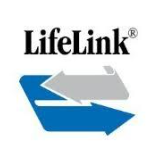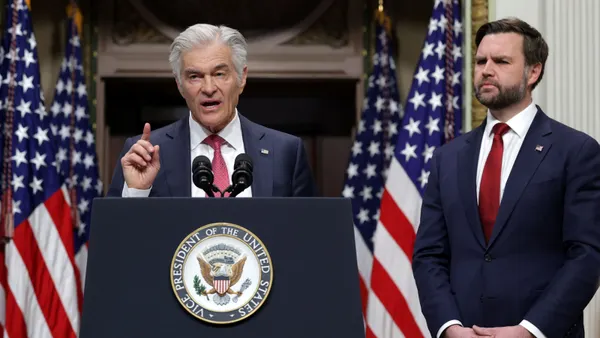Dive Brief:
- The top lobby for pharmacy benefit managers has named Adam Kautzner, the head of major PBM Express Scripts, as chair of its board.
- As board chair, Kautzner will oversee the Pharmaceutical Care Management Association’s strategy, including defense of the drug middlemen amid growing scrutiny of their role in rising drug costs.
- The PCMA has also created a new council to represent its mid-market clients, a segment of its membership that’s been growing, the lobby said Tuesday. The council will be represented by a new seat on the PCMA’s board to be held by Jeff Park, president of drug pricing platform Waltz Health.
Dive Insight:
Kautzner is president of Cigna-owned Express Scripts, the largest PBM in the U.S. overseeing pharmacy benefits for more than 118 million people last year. Kautzner is also president of care management for Cigna’s health services division.
Now, the executive is stepping up as board chair of PCMA, an influential association that represents the three largest PBMs in the country, Express Scripts, CVS’ Caremark and UnitedHealth’s Optum Rx; vertically integrated PBMs owned by Humana and Elevance; and other pharmacy benefits companies.
A spokesperson for PCMA declined to comment on Kautzner’s selection as board chair. But the executive’s roles at Cigna have given Kautzner a “deep understanding of the dynamic benefits environment,” the PCMA said in a release.
It’s a difficult time to be tasked with PBM defense. The companies sit between insurers, drugmakers and pharmacies in the U.S. supply chain — negotiating discounts with drugmakers, controlling the placement of medications on plans’ formularies and reimbursing pharmacies for dispensing drugs to their members.
PBMs say that position gives them unique leverage to control rising drug costs. But critics are less sure, pointing to PBM rebating practices that curtail access and may even inflate the list cost of drugs, along with evidence that payer clients and patients may not be benefiting from the savings that PBMs negotiate.
PBMs have also come under fire for allegedly strong-arming independent pharmacies into signing harmful contracts. Meanwhile, antitrust regulators are concerned about market concentration. Taken together, Express Scripts, Caremark and Optum Rx process roughly 80% of all U.S. prescriptions.
The PCMA’s job — to counter this narrative — has gotten harder in the past few years, given dogged interest on Capitol Hill around PBM reform. Along with launching ad campaigns blaming drugmakers for high drug prices and funding research finding PBMs create value for American patients, the PCMA also argues that the PBM market is competitive despite the so-called “Big Three.”
The PCMA’s creation of a new “affiliate council” to represent its mid-market members, along with Park’s appointment to the its new board seat, is “indicative of a diverse and competitive PBM market,” a spokesperson for the lobby told Healthcare Dive.
The PCMA spent more than $17.5 million in 2024 on lobbying, up 14% from the prior year, according to political transparency nonprofit OpenSecrets.
In the first seven months of 2025, the PCMA spent almost as much on lobbying as it did in the entire year in 2022.
Though Congress failed to pass bipartisan legislation overhauling PBM practices late last year, momentum has carried into 2025. Legislators have issued a number of bills meant to prevent the drug middlemen from profiteering off of their role in the pharmaceutical supply chain.
Still, PBM reform has fallen by the wayside amid pitched health policy battles over Medicaid cuts and the future of Affordable Care Act subsidies, to name just two. Congressional watchers don’t expect movement on the issue in 2025.













